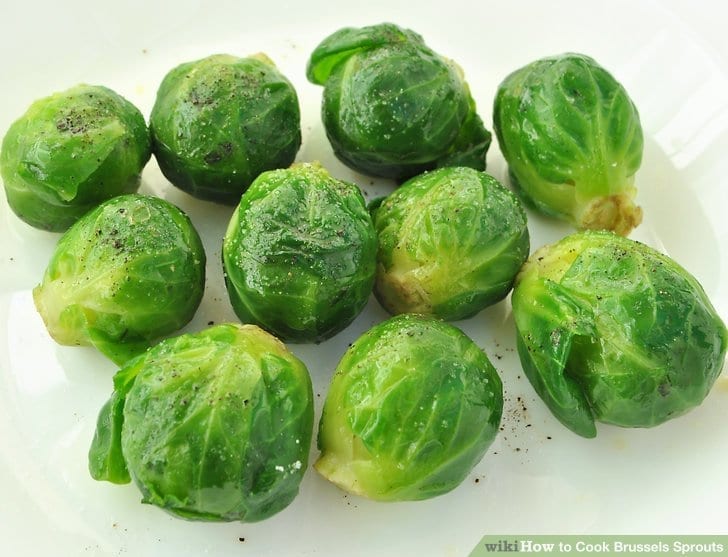
An international team identifies the genes that make plants resistant to the pathogen that attacks Brassicaceae crops around the world
From Brussels, China or Milan. “Surnames” apart, cabbages are currently cultivated throughout the entire planet. Like them, many other plants of the Brassicaceae family such as cauliflower, broccoli, cabbage and even mustard – yes, oddly enough, and different their flavor, a Brussels sprout and a mustard seed belong to the same family – have a common enemy: white rust, at least, a type of it. Specifically, Brassicaceae are threatened by the disease caused by a pathogen called Albugo candida, which, without being so, operates exactly the same as fungi, that is, extending in conditions of adequate humidity and temperature and phagocytosing the nutrients of the plants it attacks.
Without being lethal, the disease is quite common and is identified by the appearance on the leaves of a kind of white pustules that change color to give a brown appearance that deteriorates the affected part leaving it useless for consumption. The similarity with fungi has favored that treatments against this type of white rust repeat models designed as fungicide treatments. However, the need to find long-term solutions that avoid reducing the harvest has put the international scientific community to work.
The journal Proceedings of the National Academy of Sciences of the United States of America (PNAS) today publishes the work of a team composed of researchers from 8 European universities and research centers led by the Sainsbury Laboratory in Norwich (United Kingdom) and among the that is Amey Redkar, researcher of the Department of Genetics of the University of Córdoba. A team that has managed to identify multiple genes of resistance to Albugo candida. They are genes of the “nucleotide-binding leucine richrepeats” (NLR) type and have been identified using a standard model plant in plant biotechnology laboratories: Arabidopsisthaliana, which allows the extrapolation of results to other crops. In fact,
It is, then, a new achievement of basic research with clear biotechnological applications. A line of work in which the research team in which Amey Redkar is currently working and headed by the professor of Genetics at the University of Córdoba Antonio Di Pietro has specialized. Specifically, Redkar is part of the Foundation project, funded by the European Union program “Marie Sklodowska-Curie Actions”, which aims to study the mechanisms of infection of Fusarium oxysporum, an important pathogenic fungus that causes vascular wilt in more than one hundred cultivated species. Among these are tomato and plantain, specifically, the UCO team intends to identify new mechanisms of infection that serve as targets to reduce the damages caused by this pathogenic species.
Learn more: Biotechnology to the rescue of Brussels sprouts
The Latest on: Brassicaceae crops
[google_news title=”” keyword=”brassicaceae crops” num_posts=”10″ blurb_length=”0″ show_thumb=”left”]
via Google News
The Latest on: Brassicaceae crops
- 4 Countries That Produce the Most Foodon May 8, 2024 at 6:46 am
Each of these countries share the advantages of large populations, ample land area, and climate zones suitable for growing a variety of crops, though there are also major differences in the role ...
- Crop Yield: Definition, Formula, and Statisticson May 3, 2024 at 5:01 pm
Crop yield is a standard measurement of the amount of agricultural production harvested per unit of land area. It's the measure most often used for cereal, grain, or legumes and it's typically ...
- Crop Insurance 101: The Basicson May 1, 2024 at 5:00 pm
Crop insurance is exactly like it sounds: an insurance product designed to help shield farmers against a myriad of potential risks, ranging from adverse growing conditions to market fluctuations. This ...
- How to Plant Crops and Get Giant Cropson April 23, 2024 at 3:50 pm
However, if you want to achieve perfection, you'll have to do some farming. In this Stardew Valley crops guide, you'll learn how to set up crops, what tools you'll need to do, and how to get giant ...
- Palia: Crop Growing Guideon April 21, 2024 at 5:00 pm
Gardening is a useful skill in Palia. Here's a complete crop-growing guide for Palia players, including getting tools, planting seeds, and more. Palia is a fun MMO adventure that players can play ...
- What are 'orphan crops'? And why is there a new campaign to get them adopted?on April 18, 2024 at 7:30 am
The food activist, who's in his 70s, already has shelves full of prestigious awards honoring his efforts to preserve the seeds of endangered crop varieties around the globe. But something gnawed ...
- Gene-editing crops to be colourful could aid weeding, say scientistson April 17, 2024 at 9:37 am
Creating visually distinctive plants likely to become important as more weed-like crops are grown for food Genetically engineering crops to be colourful could help farmers produce food without ...
- Growing a Crop This Year is Crucial for Drought-Stricken Texas Farmers, 2024 is Now Make or Break For Manyon April 14, 2024 at 5:00 pm
Last year, they didn’t have a dryland crop to harvest. This year, the moisture situation is better, but they had been banking on better moisture this winter. El Niño typically brings bouts of ...
- Best and Most Profitable Cropson April 12, 2024 at 10:13 pm
There are a wide array of seasonal crops you can plant and harvest in Stardew Valley. While some crops are useful as a gift or to complete bundles in the Community Center, your main goal when ...
- How to Grow Turnips in Your Garden, Plus Tips for Planting and Harvestingon April 11, 2024 at 5:00 pm
Turnips are an easy-to-grow cool-season vegetable that produces a crop of cold-hardy, edible greens and a root that can be eaten raw, cooked, or pickled. Turnips are a form of Brassica rapa ...
via Bing News










